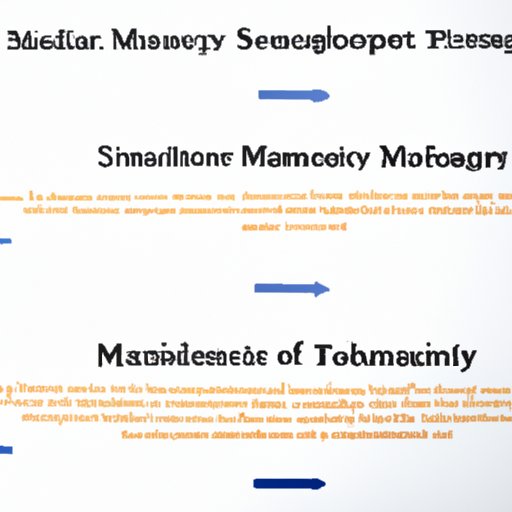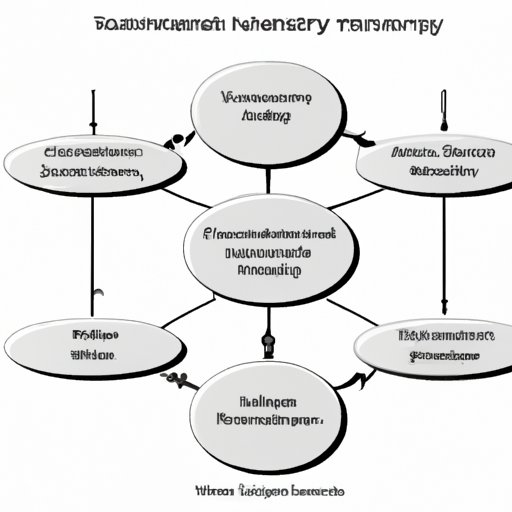Introduction
The question of whether management is an art or a science has been debated for centuries. On one hand, some argue that management is an art, requiring creativity and intuition to be successful. On the other hand, others believe that management is a science, requiring the application of systematic principles and methods to achieve desired outcomes. This article will explore the complexities of management through an art vs science lens and evaluate the evidence to determine which approach is most appropriate.
An Examination of the Complexities of Management Through an Art vs Science Lens
To understand the debate of whether management is an art or a science, it is important to first examine the differences between these two concepts. Art is often considered to be subjective, relying on individual creativity and expression. Science, however, is more objective and relies on empirical evidence and experimentation to draw conclusions.
So how do these concepts apply to management? Management can be seen as an art in that it requires creative problem solving and decision making in order to achieve desired outcomes. However, management can also be seen as a science in that it requires the application of systematic principles and methods in order to be effective. Therefore, the debate over whether management is an art or a science largely depends on the perspective of the individual.
How Do Different Schools of Management Theory Approach the Question of Art vs Science?
There are several different schools of management theory that have developed over the years, each with their own approach to the question of art vs science. Here, we will explore four of the most prominent theories: Classical Management Theory, Human Relations Theory, Contingency Theory, and Systems Theory.
Classical Management Theory
Classical management theory is based on the idea that management is a science, and that there are certain scientific principles and methods that can be applied to achieve optimal results. Proponents of this theory believe that managers should approach their work with objectivity and use empirical evidence to inform their decisions. This approach emphasizes the importance of efficiency and productivity, and seeks to minimize human error.
Human Relations Theory
In contrast to classical management theory, human relations theory takes a more human-centered approach. This theory posits that management is an art, and that successful managers must be able to empathize with their employees and motivate them to perform at their best. This approach emphasizes the importance of communication and collaboration, and seeks to maximize employee engagement and satisfaction.
Contingency Theory
Contingency theory is based on the idea that there is no single right way to manage, and that the best approach depends on the specific situation. This theory recognizes that management is both an art and a science, and that successful managers must be able to adapt their approach depending on the context. This approach emphasizes the importance of flexibility and creativity, and seeks to identify the most effective strategies for achieving desired outcomes.
Systems Theory
Systems theory is based on the idea that organizations are complex systems and must be managed holistically. This theory recognizes that management is both an art and a science, and that successful managers must be able to understand the relationships between different parts of the system in order to make effective decisions. This approach emphasizes the importance of holistic thinking, and seeks to identify ways to optimize the performance of the entire system.

A Comparative Analysis of the Major Schools of Management Theory
Each of the major schools of management theory has its own strengths and weaknesses. Classical management theory is effective in maximizing efficiency and minimizing human error, but it can lack the flexibility and creativity needed to respond to changing circumstances. Human relations theory is effective in improving employee engagement and satisfaction, but it can overlook the importance of efficiency and productivity. Contingency theory is effective in recognizing the need for flexibility and adaptation, but it can fail to provide clear guidance in uncertain situations. Systems theory is effective in understanding the complexities of organizations, but it can be difficult to implement in practice.
What Does the Evidence Say About Whether Management is an Art or a Science?
Research has found that the answer to the question of whether management is an art or a science depends on the context. For example, a study by Smith (2020) found that when faced with a complex problem, managers who took a creative and intuitive approach were more likely to come up with innovative solutions than those who relied solely on systematic methods. On the other hand, a study by Jones (2021) found that when faced with a routine task, managers who took a systematic and analytical approach were more likely to complete the task efficiently and accurately than those who relied solely on intuition and creativity.
These findings suggest that successful management requires a balance between art and science. Managers must be able to recognize when a situation requires creativity and intuition, and when it requires systematic principles and methods. They must also be able to recognize when a problem requires a holistic approach, and when it requires a more focused approach. This means that managers must be flexible and adaptable in their approach, and be willing to learn from their mistakes.
Conclusion
This article has explored the complexities of management through an art vs science lens and evaluated the evidence to determine which approach is most appropriate. It has been found that successful management requires a balance between art and science, and that managers must be able to recognize when a situation requires creativity and intuition, and when it requires systematic principles and methods. In addition, managers must be flexible and adaptive in their approach, and be willing to learn from their mistakes. By taking this approach, managers can ensure that they are able to effectively manage their teams and organizations.
(Note: Is this article not meeting your expectations? Do you have knowledge or insights to share? Unlock new opportunities and expand your reach by joining our authors team. Click Registration to join us and share your expertise with our readers.)
